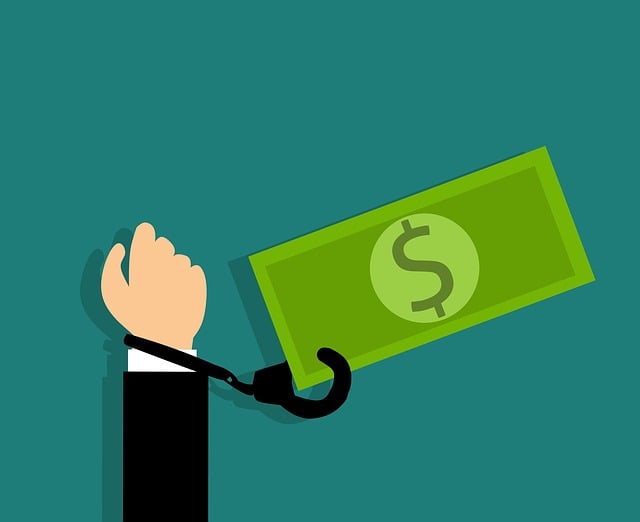Bad credit debt consolidation loans streamline repayment for individuals with high-interest debts, simplifying management and potentially saving money on interest. Eligibility is determined by income stability and existing debt obligations rather than strict credit history, making them accessible to a wider range of borrowers. Lenders assess creditworthiness through detailed applications, verifying financial information like income and debt-to-income ratios. Approved applicants receive a loan amount to consolidate their bad credit debts into a single, more manageable repayment.
Bad credit debt consolidation loans can be a game-changer for individuals struggling with high-interest debts. This article guides you through the process, focusing on the eligibility criteria that define who can access these financial aids. We’ll explore key factors lenders consider, from credit scores to debt-to-income ratios, and simplify the application and approval process. Understanding these criteria is essential in navigating bad credit debt consolidation loans and securing a brighter financial future.
- Understanding Bad Credit Debt Consolidation Loans
- Who Is Eligible for These Loans?
- Key Factors Lenders Consider
- The Application and Approval Process
Understanding Bad Credit Debt Consolidation Loans
Bad credit debt consolidation loans are a financial solution designed for individuals struggling with high-interest debts, such as credit cards and personal loans. These loans allow borrowers to combine multiple debts into one, often with a lower interest rate, making it easier to manage their repayments. The primary goal is to simplify debt repayment by reducing the number of payments needed each month and potentially saving money on interest charges.
Understanding this option is crucial for folks facing overwhelming debt. Eligibility criteria vary among lenders but generally include factors like credit score, income stability, and existing debt obligations. Lenders assess these aspects to determine the borrower’s ability to repay the consolidation loan. Despite the name, bad credit debt consolidation loans aren’t about fixing a poor credit history; instead, they offer an opportunity for responsible borrowing to improve financial health by streamlining debt repayment.
Who Is Eligible for These Loans?
Bad credit debt consolidation loans are designed to help individuals struggling with multiple high-interest debts. Who is eligible for these loans? In most cases, anyone with a bad or low credit score can apply, providing they meet certain basic criteria. Lenders typically look at factors such as income stability and debt-to-income ratio rather than focusing solely on credit history. This makes bad credit debt consolidation loans accessible to a wider range of borrowers.
To qualify, applicants generally need to be at least 18 years old, have a steady source of income, and owe a significant amount of debt. Lenders will assess the total debt burden and ensure that consolidating debts under one loan with a lower interest rate is financially beneficial for the borrower. While there are no strict restrictions based on employment type or industry, lenders may have specific requirements regarding minimum income levels to ensure repayment capability.
Key Factors Lenders Consider
When applying for bad credit debt consolidation loans, several key factors come into play that lenders consider to assess your eligibility. These include your credit history, current income, and debt-to-income ratio. Lenders will thoroughly review your credit reports to understand your past borrowing behaviors, late payments, or defaults, which significantly impact their decision. A low credit score is a common barrier for individuals seeking these loans due to the increased perceived risk.
Despite this, lenders also evaluate your ability to repay the loan by examining your income stability and existing debt obligations. The debt-to-income ratio, a crucial metric, calculates the portion of your monthly income dedicated to debt repayment. A manageable ratio improves your chances as it demonstrates your capability to handle additional loan payments responsibly. Lenders aim to ensure borrowers can manage their finances effectively while consolidating debts, making these factors essential considerations in the bad credit debt consolidation loans process.
The Application and Approval Process
When applying for bad credit debt consolidation loans, the process begins with submitting an application through a lender or financial institution that specializes in such services. Applicants will need to provide detailed information about their current financial situation, including income, existing debts, and credit history. This step is crucial as it helps lenders assess the borrower’s ability to repay the loan effectively. The application typically requires personal and financial data, ensuring transparency and accuracy are paramount to increasing the chances of approval.
Upon receipt of the application, lenders conduct a thorough review, verifying the information provided and evaluating the borrower’s creditworthiness. They consider various factors, such as income stability, debt-to-income ratio, and the types of debts held. Lenders may also run a hard credit check, which can temporarily impact the applicant’s credit score. If the assessment is favorable, the lender will move forward with the approval process, offering a loan amount tailored to the borrower’s needs and capable of consolidating their bad credit debts into a single, more manageable repayment.
Bad credit debt consolidation loans can be a viable option for individuals seeking to streamline their debts. While eligibility criteria may vary among lenders, understanding these factors is crucial before applying. By addressing key considerations like credit score, debt-to-income ratio, and loan purpose, borrowers can increase their chances of securing favorable terms. The application process involves careful documentation and assessment, ensuring lenders make informed decisions based on the latest regulations and market trends in bad credit debt consolidation loans.
